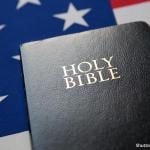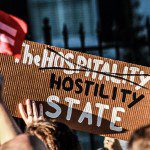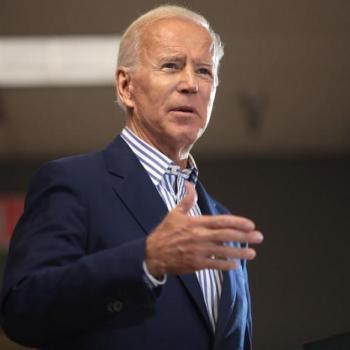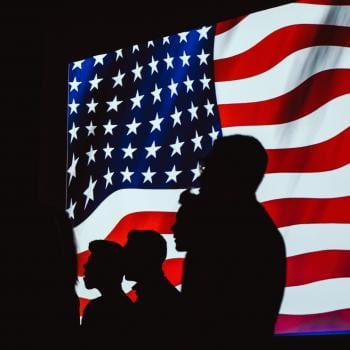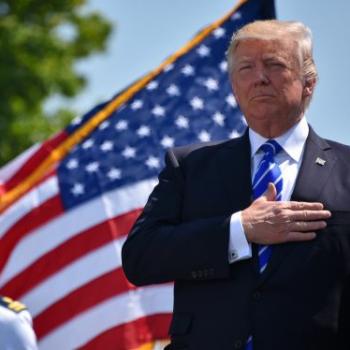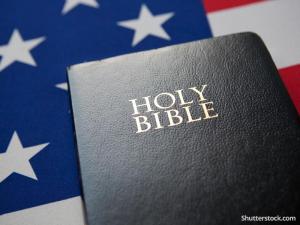 In an historic 6-3 Supreme Court decision handed down last month, Trump-appointed justice Neil Gorusch essentially brought down a hammer on a scientifically unproven theory about homosexuality; a theory which has not only fueled mostly unnecessary culture wars, but has and continues to divide Christendom in the United States and around the globe. The theory, which has for all intents and purposes has become a secular dogma, is that of sexual orientation.
In an historic 6-3 Supreme Court decision handed down last month, Trump-appointed justice Neil Gorusch essentially brought down a hammer on a scientifically unproven theory about homosexuality; a theory which has not only fueled mostly unnecessary culture wars, but has and continues to divide Christendom in the United States and around the globe. The theory, which has for all intents and purposes has become a secular dogma, is that of sexual orientation.
Thanks to the brilliant Supreme Court decision, which affirmed an emerging scholarly view that the 1964 Civil Rights Act’s prohibition on sex-based employment discrimination encompasses persons in same-sex relations, the ironclad grip that sexual orientation dogma has had held over American political discourse has been dealt a death blow. It is not that Gorsuch excludes references to sexual orientation or gay identity in the historic ruling, it is that the legal rationale he applied actually sweeps away sexual orientation dogma as the baseline for U.S. employment discrimination law. Explaining that the 1964 Civil Rights Act prohibition on sex-based employment discrimination applies to people attracted to the same sex, Gorsuch put it this way:
Consider, for example, an employer with two employees, both of whom are attracted to men. The two individuals are, to the employer’s mind, materially identical in all respects, except that one is a man and the other a woman. If the employer fires the male employee for no other reason that the fact he is attracted to men, the employer discriminates against him for traits or actions it tolerates in his female colleague.
Thus, whether you identify as an LGBT person who was born that way, whether you are a man or a woman who identifies as straight but who has fallen in love with someone of the same-sex, or whether you are an American who exercises your fundamental right to eschew sexual identity labels altogether, it no longer matters in U.S. law: Thanks to the U.S. Supreme Court, you cannot be fired from your job in secular employment because of the sex of those you have, or wish to have, intimate relations with, as that would be unlawful discrimination based upon your own sex. Dismaying some LGBT groups, the Supreme Court also affirmed this week that religious institutions retain full authority over their hiring practices as they are exempt from anti-discrimination laws.
Though this week’s SCOTUS ruling affirming that the ministerial exemption standard applies to religiously-affiliated school teachers did not directly address the matter of Catholic school teachers and other employees in same-sex relationships, the oldest LGBT legal organization in the country, Lamda Legal, characterized the ruling as opening a “veritable Pandora’s Box that threatens to the continued employment and financial security of thousands of teachers at religiously affiliated schools.” As a small L libertarian and supporter of expanding marriage contract rights to Americans in polyamorous relationships – a movement that is a getting a start in localities like Somerville, Mass. – I wonder if the good folks at Lamda Legal might be able to put their “Pandora’s Box” alarmism shoe on the other foot: Imagine, for instance, how a Catholic school administrator is supposed to explain to the children under his/her charge, and whose Catholic faith they are tasked with forming, that their science teacher is married to their math teacher, both of whom are married to their social studies teacher, all three of whom are married to Ms. Butterworth, the school cafeteria lady.
Let’s talk about Pandora’s Boxes, shall we?
Despite these recent SCOTUS rulings so brilliantly and carefully balancing the liberties of all, outside America’s courtrooms, the political deck appears to be stacked against religious institutions – including my church, the Catholic Church – that wish to exclude people in same-sex relationships in most, if not all, positions of employment, as the constituency for vigorous religious liberty protection unfortunately remains largely confined to right-wing Republicans. In other words, the same Americans, including many liberal and moderate lay Catholics, who are likely to be offended by the firing of a bank employee for being in a same-sex relationship are likely to also be offended by the firing of a Catholic school teacher for the same reason; religion, in their eyes, is not a total, all-encompassing way of life that should be taught to children, as perhaps Lamda Legal would have it, but more like a library book to be checked out when needed for enlightenment, and returned upon a due date. Yet perhaps even more determinative than this rigidly compartmentalized approach to child faith formation is the increasing, society-wide instinct to tribalize our First Amendment values: namely, interpreting one’s own commitment to this lifeline of American liberty solely through the lens of political tribe self-interest. Free speech, for instance, is treasured for one’s own social and political compadres, not so much those of other tribes. Ditto for the Establishment and Free Exercise clauses of the First Amendment. If Rev. SoandSo shares my outlook on current affairs, he’s on the right side of the Constitution, and if not, he’s an ignoramus, popular thinking often goes. Thank goodness our Founding Fathers made these balancing acts of religious liberty far more complicated than what our 2020 mass media attention spans can process.
When I considered entering formal, canonical Catholic monastic life in my twenties, I was, very momentarily, open to the idea of living a celibate life if that meant opening the doors to my vocation. What I was not open to, not even momentarily, was accepting the Catholic Church’s belief that homosexual acts are a sin, when I believe the polar opposite. Thus, I had to accept that my religious beliefs on the subject of man to man intimacy, sexual and otherwise, were in direct contrast to the teachings of institutional church. As critical as I am of the intellectual limitations of the secular LGBT movement, I am grateful that it instilled in me a core value very early in life: concealing your sexuality is the seedbed of not just your own oppression, but of your fellow human beings. As many Catholic dioceses around the country are now discovering after being sued by fired gay employees, sexuality concealment can also result in costly litigation, diverting limited resources from the needs of Catholic schoolchildren – including many poor minority children who depend upon Catholic coffers to pay for their education – to the demands of grown adults who freely chose the closet, and freely chose to be employed by an institution that they knew full well deemed homosexuality a mortal sin, then sued the Catholic Church for firing them when they were subsequently outed.
Should the Supreme Court ever reverse course by regressing to late twentieth century sexual orientation dogma, which has so divided Christendom in America, and rule that religious institutions like the Catholic Church must be compelled by law to hire people who live lives in direct contrast to its moral teachings, on the grounds that sexuality is an inborn trait like race, the Free Exercise clause of the First Amendment would become an antique overnight.
Let us hold out the hope that now that the Supreme Court has effectively freed Americans from the intellectual ball and chain of twentieth century sexual orientation dogma that perhaps the discourse on homosexuality within Christian denominations will, finally, move on from the limitation of that dogma, which has only caused further splintering and resentment within Christendom, to a deeper, more open, less defensive exploration of what God is trying to say to His greatest of creations – the human being – about our capacity for loving and nurturing one another.
As a Catholic, I believe that exploration can only be genuine if it is led by the Holy Spirit, not the coercive power of the state.
Timothy Villareal, a Catholic, is a non-canonical, privately-vowed monk.


